 Your new post is loading...
 Your new post is loading...

|
Scooped by
Dr. Alex Jimenez
February 9, 2023 2:31 PM
|
Introduction Dr. Jimenez, D.C., presents how chronic metabolic connections like inflammation and insulin resistance are causing a chain reaction in the body in this 2-part series. Many factors often play a role in our health and wellness. In today’s presentation, we will continue on how these chronic metabolic diseases affect the vital organs and organ systems. It can lead to overlapping risk factors associated with pain-like symptoms in the muscles, joints, and vital organs. Part 1 examined how overlapping risk profiles like insulin resistance and inflammation affect the body and cause muscle and joints pain-like symptoms. We mention our patients to certified medical providers that provide available therapy treatments for individuals suffering from chronic conditions associated with metabolic connections. We encourage each patient when it is appropriate by referring them to associated medical providers based on their diagnosis or needs. We understand and accept that education is a marvelous way when asking our providers’ crucial questions at the patient’s request and acknowledgment. Dr. Alex Jimenez, D.C., uses this information as an educational service. Disclaimer How The Liver Associated With Metabolic Diseases Dr. Jimenez, D.C., presents: So we can look to the liver to find earlier cues of cardiovascular risk. How can we do that? Well, let’s understand some liver biochemistry. So in a healthy liver cell hepatocyte, when you have increased insulin being secreted because there was a meal that required glucose to be absorbed, what you expect if the insulin receptor works is that the glucose would go in. Then the glucose would get oxidized and turned into energy. But here’s the problem. When the hepatocyte has insulin receptors that don’t work, you’ve got that insulin on the outside, and the glucose never made it in. But what also happens on the inside of the hepatocyte is it was assumed that the glucose was going to get in. So what it does is it turns off fatty acid oxidation, thinking, “Guys, we don’t need to burn our fatty acids. We’ve got some glucose coming in.” So when the glucose is not there, and you’re not burning off fatty acids, very common for people to feel fatigued because nothing is burning for energy. But here is the secondary sequela; where are all those fatty acids going, right? Well, the liver may try to repackage them as triglycerides. Sometimes, they stay in the hepatocyte or get shifted out of the liver into the bloodstream as VLDL or very low-density lipoprotein. You might see it as a high triglyceride shift in a standard lipid panel. So, when all of us are talking about getting a triglyceride level to around 70 as your 8+ goal, when I start seeing triglycerides rising, we wait until they’re 150, even though that’s the cutoff for our labs. When we see it at 150, we know they are shunting triglycerides out of the liver. So that will happen many times before we find impaired fasting glucose. So look at your triglycerides, fasting triglycerides, as an emerging or early biomarker of insulin dysfunction. So this is another diagram that says that if the triglycerides are being created because the fatty acids are being oxidized, they can stay in the liver. Then that makes steatosis or the fatty liver, or they can be pushed out, and they turn into lipoproteins. We’re going to talk about that in just a second. The body is like, “What are we going to do with these fatty acids?” We can’t try to shove them into places because nobody wants them. To that point, the liver is like, “I don’t want them, but I will keep some with me.” Or the liver would have these fatty acids transported and stuck to the blood vessel walls. General Disclaimer * The information herein is not intended to replace a one-on-one relationship with a qualified health care professional, licensed physician, and is not medical advice. We encourage you to make your own health care decisions based on your research and partnership with a qualified health care professional. Our information scope is limited to chiropractic, musculoskeletal, physical medicines, wellness, sensitive health issues, functional medicine articles, topics, and discussions. We provide and present clinical collaboration with specialists from a wide array of disciplines. Each specialist is governed by their professional scope of practice and their jurisdiction of licensure. We use functional health & wellness protocols to treat and support care for the injuries or disorders of the musculoskeletal system. Our videos, posts, topics, subjects, and insights cover clinical matters, issues, and topics that relate to and support, directly or indirectly, our clinical scope of practice.* Our office has made a reasonable attempt to provide supportive citations and has identified the relevant research study or studies supporting our posts. We provide copies of supporting research studies available to regulatory boards and the public upon request. We understand that we cover matters that require an additional explanation of how it may assist in a particular care plan or treatment protocol; therefore, to further discuss the subject matter above, please feel free to ask Dr. Alex Jimenez or contact us at 915-850-0900. Dr. Alex Jimenez DC, MSACP, CCST, IFMCP*, CIFM*, ATN* email: coach@elpasofunctionalmedicine.com Licensed in: Texas & New Mexico*

|
Scooped by
Dr. Alex Jimenez
June 8, 2022 8:03 PM
|
Introduction The skin and the gut have a unique connection. The gut system is home to trillions of microorganisms that help metabolize the body’s homeostasis while keeping the immune system functioning for the body to be working correctly. The skin has its set of functions as well as it is the largest organ and helps protect the body from external factors from harm. When these disruptive factors start to affect either the gut or the skin, it can lead to numerous conditions that cause the body to be dysfunctional. When the gut becomes affected by these disruptive factors, it can cause gut disorders and inflammation, affecting the skin and causing disruptions. Today’s article will discuss a skin disorder known as psoriasis and how the gut-skin connection is affected by psoriasis. Referring patients to certified, skilled providers who specialize in gastroenterology treatments. We provide guidance to our patients by referring to our associated medical providers based on their examination when it’s appropriate. We find that education is critical for asking insightful questions to our providers. Dr. Alex Jimenez DC provides this information as an educational service only. Disclaimer Can my insurance cover it? Yes, it may. If you are uncertain, here is the link to all the insurance providers we cover. If you have any questions or concerns, please call Dr. Jimenez at 915-850-0900. What Is Psoriasis? Do you have severe itching along your face and arms? Do certain foods seem to aggravate your digestive tract or skin? Or have you experienced any gut disorders that are affecting your wellbeing? Many of these symptoms are signs of inflammatory issues affecting the gut and are associated with a skin disorder known as psoriasis. Research studies have defined psoriasis as a chronic inflammatory skin disease that is an autoimmune process in which abnormal differentiation and hyper-proliferation of the epidermis occur with redness and scaling. Psoriasis affects about 2% of the general population in the world and is an autoimmune process driven by abnormally activated helper T cells. Additional studies have mentioned that psoriasis is sustained by inflammation that causes the keratinocyte proliferation to be uncontrollable and has dysfunctional differentiation. The inflammatory pathways activate psoriasis in different body locations, causing the individual to become miserable because they are itching and becoming miserable. General Disclaimer * The information herein is not intended to replace a one-on-one relationship with a qualified health care professional, licensed physician, and is not medical advice. We encourage you to make your own health care decisions based on your research and partnership with a qualified health care professional. Our information scope is limited to chiropractic, musculoskeletal, physical medicines, wellness, sensitive health issues, functional medicine articles, topics, and discussions. We provide and present clinical collaboration with specialists from a wide array of disciplines. Each specialist is governed by their professional scope of practice and their jurisdiction of licensure. We use functional health & wellness protocols to treat and support care for the injuries or disorders of the musculoskeletal system. Our videos, posts, topics, subjects, and insights cover clinical matters, issues, and topics that relate to and support, directly or indirectly, our clinical scope of practice.* Our office has made a reasonable attempt to provide supportive citations and has identified the relevant research study or studies supporting our posts. We provide copies of supporting research studies available to regulatory boards and the public upon request. We understand that we cover matters that require an additional explanation of how it may assist in a particular care plan or treatment protocol; therefore, to further discuss the subject matter above, please feel free to ask Dr. Alex Jimenez or contact us at 915-850-0900. Dr. Alex Jimenez DC, MSACP, CCST, IFMCP*, CIFM*, ATN* email: coach@elpasofunctionalmedicine.com Licensed in: Texas & New Mexico*

|
Scooped by
Dr. Alex Jimenez
June 7, 2022 7:54 PM
|
Introduction The body is always going through many factors that constantly test the durability that can affect the entire microbiome itself. The gut helps the body’s homeostasis by metabolizing the nutrients that provide the energy for functionality. The gut system is home to trillions of microorganisms that communicate to the brain system, endocrine system, immune system, and skin to ensure that it is healthy. When disruptive factors enter the gut system, they can cause various issues that can make the dysfunctional body while affecting its communication with the body’s axis. Today’s article focuses on a skin condition that everyone has suffered in their lives known as acne and how the gut-skin axis is being affected by acne. Referring patients to certified, skilled providers who specialize in gastroenterology treatments. We provide guidance to our patients by referring to our associated medical providers based on their examination when it’s appropriate. We find that education is critical for asking insightful questions to our providers. Dr. Alex Jimenez DC provides this information as an educational service only. Disclaimer Can my insurance cover it? Yes, it may. If you are uncertain, here is the link to all the insurance providers we cover. If you have any questions or concerns, please call Dr. Jimenez at 915-850-0900. What Is Acne Vulgaris? Have you noticed bumps along your face, especially in the nose, forehead, and cheek regions? How about inflammatory reactions that are affecting your skin? Do issues like GERD, IBS, leaky gut, or SIBO affect your gut? Most of these issues are due to disruptive factors that affect the gut-skin connection and cause a skin condition known as acne vulgaris. Everybody suffers from acne when they are young, and it is a common condition with follicular papules or comedones and inflammatory papules and pustules. Research studies have shown that acne vulgaris is an inflammatory disorder triggered by many factors that can cause it to become aggravated and inflamed. Some of the contributing factors that can cause acne vulgaris to form due to the following: - Infection (Propionibacterium acnes)
- Tissue inflammation
- Plugging of hair follicles due to epidermal hyperproliferation
- Hormone imbalance
- Endocrine disorders
- Excess sun exposure
Other research studies have shown that other factors like gut disorders can also affect the development of acne vulgaris. Acne vulgaris can be associated with the emotional factors that affect the brain and the gut’s inflammatory factors as they go hand in hand. When a person becomes stressed or anxious, their skin will flare up and develop acne around some skin regions. Additional studies have mentioned that emotional factors like stress and anxiety can alter the gut microbiota and increase intestinal permeability. When gut disorders start to contribute to skin inflammation, it can aggravate acne to develop and form on the skin. General Disclaimer * The information herein is not intended to replace a one-on-one relationship with a qualified health care professional, licensed physician, and is not medical advice. We encourage you to make your own health care decisions based on your research and partnership with a qualified health care professional. Our information scope is limited to chiropractic, musculoskeletal, physical medicines, wellness, sensitive health issues, functional medicine articles, topics, and discussions. We provide and present clinical collaboration with specialists from a wide array of disciplines. Each specialist is governed by their professional scope of practice and their jurisdiction of licensure. We use functional health & wellness protocols to treat and support care for the injuries or disorders of the musculoskeletal system. Our videos, posts, topics, subjects, and insights cover clinical matters, issues, and topics that relate to and support, directly or indirectly, our clinical scope of practice.* Our office has made a reasonable attempt to provide supportive citations and has identified the relevant research study or studies supporting our posts. We provide copies of supporting research studies available to regulatory boards and the public upon request. We understand that we cover matters that require an additional explanation of how it may assist in a particular care plan or treatment protocol; therefore, to further discuss the subject matter above, please feel free to ask Dr. Alex Jimenez or contact us at 915-850-0900. Dr. Alex Jimenez DC, MSACP, CCST, IFMCP*, CIFM*, ATN* email: coach@elpasofunctionalmedicine.com Licensed in: Texas & New Mexico*

|
Scooped by
Dr. Alex Jimenez
June 6, 2022 4:38 PM
|
Introduction The gut system is a massive ecosystem that helps modulate the body’s immune system and metabolic changes that the body itself is going through. The gut system provides the body with the necessary nutrients to function correctly and transports these nutrients to their respective sections like the endocrine system, the nervous system, and the musculoskeletal system to do their jobs. When gut disorders start to affect the intestinal walls, it can cause the inflammatory cytokines to attack the gut walls due to bacteria and nutrients leaking out of the tight junctions. Fortunately, there are therapeutic ways to help the gut system and prevent inflammation from causing more issues in the gut. Today’s article looks at gut metainflammation and how nutraceuticals can help many individuals with gut metainflammation. Referring patients to qualified, skilled providers who specialize in gastroenterology treatments. We provide guidance to our patients by referring to our associated medical providers based on their examination when it’s appropriate. We find that education is critical for asking insightful questions to our providers. Dr. Alex Jimenez DC provides this information as an educational service only. Disclaimer Can my insurance cover it? Yes, it may. If you are uncertain, here is the link to all the insurance providers we cover. If you have any questions or concerns, please call Dr. Jimenez at 915-850-0900. What Is Gut Metainflammation? Does your gut system feel sore or tender to the touch? Do ordinary factors like stress, sleep problems, hormone imbalances, and cardiovascular issues affect you more than they should have? Have you experienced inflammatory gut issues like IBS or leaky gut? Having any gut disorder is no laughing matter for your health. When the gut system is experiencing chronic low‐grade inflammatory sequela, this is what gut metainflammation is in the body. Gut metainflammation is defined as an over‐activation of immunity in the gut that leads to increased production of inflammatory cytokines, thus referring to metabolism-induced inflammation. Research studies have shown that when the gut is experiencing metainflammation, it causes a disturbance to the neurometabolic pathways. This causes an increase in the aging processes and metabolic signaling issues the gut is trying to provide for the body. Other research studies have shown that metainflammation is one of the primary markers for metabolic disorders like obesity, type 2 diabetes, and NAFLD (nonalcoholic fatty liver disease). Gut metainflammation also causes an increase in peripheral and central inflammation that can cause gut disorders like leaky gut to allow bacteria and toxins to enter the bloodstream, thus leading to peripheral and central inflammation of the body. General Disclaimer * The information herein is not intended to replace a one-on-one relationship with a qualified health care professional, licensed physician, and is not medical advice. We encourage you to make your own health care decisions based on your research and partnership with a qualified health care professional. Our information scope is limited to chiropractic, musculoskeletal, physical medicines, wellness, sensitive health issues, functional medicine articles, topics, and discussions. We provide and present clinical collaboration with specialists from a wide array of disciplines. Each specialist is governed by their professional scope of practice and their jurisdiction of licensure. We use functional health & wellness protocols to treat and support care for the injuries or disorders of the musculoskeletal system. Our videos, posts, topics, subjects, and insights cover clinical matters, issues, and topics that relate to and support, directly or indirectly, our clinical scope of practice.* Our office has made a reasonable attempt to provide supportive citations and has identified the relevant research study or studies supporting our posts. We provide copies of supporting research studies available to regulatory boards and the public upon request. We understand that we cover matters that require an additional explanation of how it may assist in a particular care plan or treatment protocol; therefore, to further discuss the subject matter above, please feel free to ask Dr. Alex Jimenez or contact us at 915-850-0900. Dr. Alex Jimenez DC, MSACP, CCST, IFMCP*, CIFM*, ATN* email: coach@elpasofunctionalmedicine.com Licensed in: Texas & New Mexico*

|
Scooped by
Dr. Alex Jimenez
April 4, 2022 7:32 PM
|
Introduction The gut system is home to the organs and intestines that ensure that the consumed food is digested and absorbed into the bloodstream while being transported throughout the entire body. The gut system makes sure that the energy, growth, metabolism, and immune support are provided to the body and the immune system, endocrine system, and even the central nervous system for optimal performance. When pathogens enter the gut system, they can cause a variety of gut disorders like SIBO (small intestinal bacterial growth) to cause havoc in the gut system and cause the body to be dysfunctional. In this 2 part series, we will be looking at different treatments for SIBO and SIFO to optimize gut health. In Part 1, we looked at how SIBO and SIFO affect the gut and their symptoms. By referring patients to qualified and skilled providers who specialize in gastroenterology services. To that end, and when appropriate, we advise our patients to refer to our associated medical providers based on their examination. We find that education is the key to asking valuable questions to our providers. Dr. Alex Jimenez DC provides this information as an educational service only. Disclaimer Can my insurance cover it? Yes, it may. If you are uncertain, here is the link to all the insurance providers we cover. If you have any questions, please call Dr. Jimenez at 915-850-0900. SIBO/SIFO & The Intestines In the gut, trillions of bacteria live in the stomach and intestines that help make sure that the food is digested and absorbed into the bloodstream as nutrients. These bacteria help keep the gut and intestines healthy and the body functioning as they help regulate the digestive system. The intestines are the primary reason nutrients are absorbed into the bloodstream. When there is an overabundance of bacteria and fungi species in the intestines causing the gut to be dysfunctional, it’s known as SIBO (small intestinal bacterial overgrowth) and SIFO (small intestinal fungal overgrowth). Part 1 looked at what SIBO and SIFO are and how their symptoms impact the gut. Research shows that SIBO is a commonly diagnosed gastrointestinal disorder that causes maldigestion and malabsorption in the intestines. When there are more bad bacteria than good, it can cause gastrointestinal symptoms like gas, bloating, and abdominal pain in the gut system and overlap with gastrointestinal disorders causing gut discomfort. Hence treatments can help with eliminating SIBO and SIFO out of the intestines and provide relief to the gut. General Disclaimer * The information herein is not intended to replace a one-on-one relationship with a qualified health care professional, licensed physician, and is not medical advice. We encourage you to make your own health care decisions based on your research and partnership with a qualified health care professional. Our information scope is limited to chiropractic, musculoskeletal, physical medicines, wellness, sensitive health issues, functional medicine articles, topics, and discussions. We provide and present clinical collaboration with specialists from a wide array of disciplines. Each specialist is governed by their professional scope of practice and their jurisdiction of licensure. We use functional health & wellness protocols to treat and support care for the injuries or disorders of the musculoskeletal system. Our videos, posts, topics, subjects, and insights cover clinical matters, issues, and topics that relate to and support, directly or indirectly, our clinical scope of practice.* Our office has made a reasonable attempt to provide supportive citations and has identified the relevant research study or studies supporting our posts. We provide copies of supporting research studies available to regulatory boards and the public upon request. We understand that we cover matters that require an additional explanation of how it may assist in a particular care plan or treatment protocol; therefore, to further discuss the subject matter above, please feel free to ask Dr. Alex Jimenez or contact us at 915-850-0900. Dr. Alex Jimenez DC, MSACP, CCST, IFMCP*, CIFM*, ATN* email: coach@elpasofunctionalmedicine.com Licensed in: Texas & New Mexico*

|
Scooped by
Dr. Alex Jimenez
April 1, 2022 2:42 PM
|
Introduction The gut system makes sure that any food that is being digested gets turned into nutrient particles and is transported all over the entire body. The food particles will be secreted out of the body to prevent waste from building up in the gut. The primary function of the gut system is to make sure that any food is being transformed into nutrients to help with growth, metabolism, and immune support for a functional body. The gut system also has a bidirectional connection to the brain as they send information back and forth to each other and keep the organs from being dysfunctional. When harmful pathogens enter the gut system, they can develop into chronic issues and affect the gut and the body. In this article, we will be looking at what GERD is, its symptoms, and how it can affect stomach acid. By referring patients to qualified and skilled providers who specialize in gastroenterology services. To that end, and when appropriate, we advise our patients to refer to our associated medical providers based on their examination. We find that education is the key to asking valuable questions to our providers. Dr. Alex Jimenez DC provides this information as an educational service only. Disclaimer Can my insurance cover it? Yes, it may. If you are uncertain, here is the link to all the insurance providers we cover. If you have any questions, please call Dr. Jimenez at 915-850-0900. What Is GERD? Research studies have shown that GERD usually occurs when stomach acid frequently flows back and forth in the tube, where the mouth and the esophagus are connected, irritating the esophagus wall lining. So GERD or gastroesophageal reflux disease is the reflux of gastric contents into the esophagus in normal physiology and is defined as reflux leading to symptoms, esophageal mucosal injury, or both. The majority of individuals with GERD will show no abnormalities on upper endoscopy, and there are not any esophageal lesions (erosions, ulceration, intestinal metaplasia) for them to be diagnosed with GERD. Other research studies have also shown that GERD is a common digestive disorder that affects people worldwide and has troublesome symptoms and conditions that can affect a person’s quality of life. The Symptoms Of GERD Some of the typical symptoms of GERD that individuals will experience are heartburn, which is painful retrosternal burning or pressure sensation that may be angina‐like in quality, and regurgitation, which is the rising of gastric contents into the upper throat or mouth. Studies have shown that GERD can also be defined as mucosal damage due to the production of abnormal reflux of gastric contents. GERD can also be classified as NERD (non-erosive reflux disease) or ERD (erosive reflux disease) depending on how severe the presence or absence of esophageal mucosal damage GERD has caused in the esophagus. Some of the other symptoms that GERD can cause to the gut system and the body include: General Disclaimer * The information herein is not intended to replace a one-on-one relationship with a qualified health care professional, licensed physician, and is not medical advice. We encourage you to make your own health care decisions based on your research and partnership with a qualified health care professional. Our information scope is limited to chiropractic, musculoskeletal, physical medicines, wellness, sensitive health issues, functional medicine articles, topics, and discussions. We provide and present clinical collaboration with specialists from a wide array of disciplines. Each specialist is governed by their professional scope of practice and their jurisdiction of licensure. We use functional health & wellness protocols to treat and support care for the injuries or disorders of the musculoskeletal system. Our videos, posts, topics, subjects, and insights cover clinical matters, issues, and topics that relate to and support, directly or indirectly, our clinical scope of practice.* Our office has made a reasonable attempt to provide supportive citations and has identified the relevant research study or studies supporting our posts. We provide copies of supporting research studies available to regulatory boards and the public upon request. We understand that we cover matters that require an additional explanation of how it may assist in a particular care plan or treatment protocol; therefore, to further discuss the subject matter above, please feel free to ask Dr. Alex Jimenez or contact us at 915-850-0900. Dr. Alex Jimenez DC, MSACP, CCST, IFMCP*, CIFM*, ATN* email: coach@elpasofunctionalmedicine.com Licensed in: Texas & New Mexico*

|
Scooped by
Dr. Alex Jimenez
March 31, 2022 3:22 PM
|
Introduction The body’s primary job is to make sure that each organ system works correctly and does its job. One of the systems in the body is the gut system, and its position is to make sure that the food is being consumed and digested to be turned into nutrients and transported throughout the entire body. The gut system makes sure that the food is being digested and excreted out of the body to be functional. The digestion of the food being turned into particles is done through the bile acids in the stomach and the intestines (both large and small) to help turn the foods into nutrients and help regulate the entire digestive system. In this 2 part series, we will be looking at what bile acids are, their role in the gut, and what gall sludge is. Part 2 will look at how bile acids are hormones, sterolbiome, and bile reflux. By referring patients to qualified and skilled providers who specialize in gastroenterology services. To that end, and when appropriate, we advise our patients to refer to our associated medical providers based on their examination. We find that education is the key to asking valuable questions to our providers. Dr. Alex Jimenez DC provides this information as an educational service only. Disclaimer Can my insurance cover it? Yes, it may. If you are uncertain, here is the link to all the insurance providers we cover. If you have any questions, please call Dr. Jimenez at 915-850-0900. The Gut’s Role In The Body Since the human body is a complex ecosystem that is predominantly bacterial on a cellular and gene level, the various surfaces of the body are an interconnected network of ecosystems made up of human cells, bacteria, and archaea. These include: As research studies have found, the gut microbiota is home to a complex community of over trillions of microbial cells that help influence the human body’s physiology, metabolism, nutrition, and immune function to ensure that everything is working and functioning correctly. Through their capacity, the gut microbial community can also produce bile acid metabolites that are distinct from the liver. The produced bile acids from the liver can be thought of as an endocrine organ with the potential to alter host physiology, perhaps to their favor. General Disclaimer * The information herein is not intended to replace a one-on-one relationship with a qualified health care professional, licensed physician, and is not medical advice. We encourage you to make your own health care decisions based on your research and partnership with a qualified health care professional. Our information scope is limited to chiropractic, musculoskeletal, physical medicines, wellness, sensitive health issues, functional medicine articles, topics, and discussions. We provide and present clinical collaboration with specialists from a wide array of disciplines. Each specialist is governed by their professional scope of practice and their jurisdiction of licensure. We use functional health & wellness protocols to treat and support care for the injuries or disorders of the musculoskeletal system. Our videos, posts, topics, subjects, and insights cover clinical matters, issues, and topics that relate to and support, directly or indirectly, our clinical scope of practice.* Our office has made a reasonable attempt to provide supportive citations and has identified the relevant research study or studies supporting our posts. We provide copies of supporting research studies available to regulatory boards and the public upon request. We understand that we cover matters that require an additional explanation of how it may assist in a particular care plan or treatment protocol; therefore, to further discuss the subject matter above, please feel free to ask Dr. Alex Jimenez or contact us at 915-850-0900. Dr. Alex Jimenez DC, MSACP, CCST, IFMCP*, CIFM*, ATN* email: coach@elpasofunctionalmedicine.com Licensed in: Texas & New Mexico*

|
Scooped by
Dr. Alex Jimenez
March 30, 2022 4:08 PM
|
Introduction In the body, the digestive system makes sure that the food that is being consumed is digested in the gastrointestinal (GI) tract and the nutrients, minerals, and vitamins are being transported all throughout the entire body. Once that is done, the excess unused food is excreted out to avoid any issues that the gut or the body has encountered. Most of the time, the food a person eats can cause gut issues in the stomach and if a person continues to consume the same food, it can cause inflammation in the gut. When this happens, the inflammatory cytokines will attach themselves to the gut intestinal permeability and the immune system will begin to attack the intestinal permeability causing the toxins and gut bacteria to leak out and progress the gut inflammation further turning into IBD (inflammatory bowel disease). In this 2 part series, we will be taking a look at the pathophysiology of IBD (inflammatory bowel disease) and how its symptoms affect the gut system. Part 2 will be taking a look at how IBD affects the other organs and what kind of therapeutic treatments can help dampen the symptoms of IBD. By referring patients to qualified and skilled providers who specialize in gastroenterology services. To that end, and when appropriate, we advise our patients to refer to our associated medical providers based on their examination. We find that education is the key to asking valuable questions to our providers. Dr. Alex Jimenez DC provides this information as an educational service only. Disclaimer Can my insurance cover it? Yes, it may. If you are uncertain, here is the link to all the insurance providers we cover. If you have any questions, please call Dr. Jimenez at 915-850-0900. What Is IBD? IBD or inflammatory bowel disease is when the digestive tract has chronic inflammation all over the digestive tract. When inflammation is in the body, it can be beneficial and harmful, depending on how severe it is. When inflammation is in its acute form, the immune system will send out the inflammatory cytokines to the injured area of the body, where it will attack the pathogen, causing the affected area to be red and hot to the touch for a few minutes to hours, depending on how severe it is. In its chronic state, however, inflammation can be caused either by a food allergen or sensitivity that can upset the gut system, an acute inflammation that hasn’t been treated, a person who has been exposed to toxins, or even an autoimmune disorder that can affect the body. When these factors start to cause the immune system to attack the healthy tissues like the gut permeability, it can lead to IBD. Research studies have shown that the exact cause of IBD is unknown, but factors can cause IBD to progress and aggravate the gut to develop IBD. Some of the risk factors that can exacerbate IBD are: - Age
- Family history
- Environmental triggers
- Compromised immune system
Other research studies have found that IBD is defined as chronic intestinal inflammation of the small and large intestines causing the body’s immune system to attack the digestive system, thus encompassing two primary inflammatory forms known as Crohn’s disease and ulcerative colitis. When chronic inflammation in the gut, the epithelial cells are secreted out of the intestinal wall lining, causing the immune system to attack the intestines. This will lead to the development of Crohn’s disease and ulcerative colitis. General Disclaimer * The information herein is not intended to replace a one-on-one relationship with a qualified health care professional, licensed physician, and is not medical advice. We encourage you to make your own health care decisions based on your research and partnership with a qualified health care professional. Our information scope is limited to chiropractic, musculoskeletal, physical medicines, wellness, sensitive health issues, functional medicine articles, topics, and discussions. We provide and present clinical collaboration with specialists from a wide array of disciplines. Each specialist is governed by their professional scope of practice and their jurisdiction of licensure. We use functional health & wellness protocols to treat and support care for the injuries or disorders of the musculoskeletal system. Our videos, posts, topics, subjects, and insights cover clinical matters, issues, and topics that relate to and support, directly or indirectly, our clinical scope of practice.* Our office has made a reasonable attempt to provide supportive citations and has identified the relevant research study or studies supporting our posts. We provide copies of supporting research studies available to regulatory boards and the public upon request. We understand that we cover matters that require an additional explanation of how it may assist in a particular care plan or treatment protocol; therefore, to further discuss the subject matter above, please feel free to ask Dr. Alex Jimenez or contact us at 915-850-0900. Dr. Alex Jimenez DC, MSACP, CCST, IFMCP*, CIFM*, ATN* email: coach@elpasofunctionalmedicine.com Licensed in: Texas & New Mexico*

|
Scooped by
Dr. Alex Jimenez
March 29, 2022 5:54 PM
|
Introduction The digestive system is home to the gut, the gastrointestinal (GI) tract, the liver, the intestines, and other organs that make sure that the consumed food is being digested and the nutrients from the digested foods are being transported to all the necessary systems, muscles, tissues, and cells while the bile is excreted out of the body. In this 2 part series, we will be taking a look at the GI tract and how each organ functions in the digestive system as well as how the enteric nervous system and how each muscle and cells work together. Part 2 will be taking a look at how gastrointestinal disorders can affect the gut and what kind of treatments dampen their effects. By referring patients to qualified and skilled providers who specialized in gastroenterology services. To that end, and when appropriate, we advise our patients to refer to our associated medical providers based on their examination. We find that education is the key to asking valuable questions to our providers. Dr. Alex Jimenez DC provides this information as an educational service only. Disclaimer Can my insurance cover it? Yes, it may. In case you are uncertain here is the link to all the insurance providers we cover. If you have any questions, please call Dr. Jimenez at 915-850-0900. What Is The GI Tract? So the gastrointestinal tract or the GI tract is part of the digestive system where it’s a long tube that is connecting to hollow organs to not only digest food but also excrete it out of the body as well. Research studies have shown that the GI tract works together with the central nervous system and the circulatory system by utilizing the body’s nerves, hormones, bacteria, blood, and organs to help digest the foods and liquids while providing the nutrients to make the body work properly. The sphincters in the GI tract include: - Upper esophageal
- Lower esophageal
- Pylorus
- Sphincter of Oddi
- Ileocecal valve
- Internal and external anal sphincters
The GI motility is a tightly integrated system that is regulated by the enteric nervous system while being responsible for mixing, propulsive, and organized patterns of movements. Other research studies have shown that the GI tract in the digestive system helps the body receive nutrients like carbohydrates, proteins, fats, minerals, and vitamins to help the body absorb them to promote new energy, growth, and repairing the cellular structure. Some of the organs that help the GI tract stay functional are: - Esophagus
- Stomach
- Small intestine
- Colon
- Anorectum
General Disclaimer * The information herein is not intended to replace a one-on-one relationship with a qualified health care professional, licensed physician, and is not medical advice. We encourage you to make your own health care decisions based on your research and partnership with a qualified health care professional. Our information scope is limited to chiropractic, musculoskeletal, physical medicines, wellness, sensitive health issues, functional medicine articles, topics, and discussions. We provide and present clinical collaboration with specialists from a wide array of disciplines. Each specialist is governed by their professional scope of practice and their jurisdiction of licensure. We use functional health & wellness protocols to treat and support care for the injuries or disorders of the musculoskeletal system. Our videos, posts, topics, subjects, and insights cover clinical matters, issues, and topics that relate to and support, directly or indirectly, our clinical scope of practice.* Our office has made a reasonable attempt to provide supportive citations and has identified the relevant research study or studies supporting our posts. We provide copies of supporting research studies available to regulatory boards and the public upon request. We understand that we cover matters that require an additional explanation of how it may assist in a particular care plan or treatment protocol; therefore, to further discuss the subject matter above, please feel free to ask Dr. Alex Jimenez or contact us at 915-850-0900. Dr. Alex Jimenez DC, MSACP, CCST, IFMCP*, CIFM*, ATN* email: coach@elpasofunctionalmedicine.com Licensed in: Texas & New Mexico*

|
Scooped by
Dr. Alex Jimenez
March 24, 2022 7:46 PM
|
Introduction The gut and the brain have two different jobs that do different functions in the body but, have a bidirectional communication with each other. The brain is part of the central nervous system that sends out neuron signals all throughout the entire body. These neuron signals make sure that everything is working properly, from the heart beating to blood pressure being regulated. The gut is part of the digestive system and it makes sure that food is being digested properly, while the beneficial good bacteria is protecting the gut from harmful pathogens. When unwanted pathogens start to affect either the brain, the gut, or both, it can cause problems to the body making it dysfunctional and causing the individual unwanted pain. In this 2 part series, we will be taking a look at the different factors that can affect the gut-brain axis. Part 1 took a look at what the gut-brain axis is and how does it function in the body. By referring patients to qualified and skilled providers who specialized in gastroenterology services. To that end, and when appropriate, we advise our patients to refer to our associated medical providers based on their examination. We find that education is the key to asking valuable questions to our providers. Dr. Alex Jimenez DC provides this information as an educational service only. Disclaimer Can my insurance cover it? Yes, in case you are uncertain here is the link to all the insurance providers we cover. If you have any questions, please call Dr. Jimenez at 915-850-0900. The Gut-Brain Connection The gut-brain connection provides a bidirectional connection to both the brain and the gut. Both of these organs continuously send each other signals back and forth in order to make sure that the body is functioning properly while also doing their jobs as well. Research studies show that the gut-brain connection is also known as the enteric nervous system and what it does is that it’s a network of nerves, neurons, and neurotransmitters that extends all over the entire digestive tract. The enteric nervous system is also referred to as a ”second brain”, which is the gut as it is in constant communication to the brain and plays a major key role in diseases and mental health for individuals. General Disclaimer * The information herein is not intended to replace a one-on-one relationship with a qualified health care professional, licensed physician, and is not medical advice. We encourage you to make your own health care decisions based on your research and partnership with a qualified health care professional. Our information scope is limited to chiropractic, musculoskeletal, physical medicines, wellness, sensitive health issues, functional medicine articles, topics, and discussions. We provide and present clinical collaboration with specialists from a wide array of disciplines. Each specialist is governed by their professional scope of practice and their jurisdiction of licensure. We use functional health & wellness protocols to treat and support care for the injuries or disorders of the musculoskeletal system. Our videos, posts, topics, subjects, and insights cover clinical matters, issues, and topics that relate to and support, directly or indirectly, our clinical scope of practice.* Our office has made a reasonable attempt to provide supportive citations and has identified the relevant research study or studies supporting our posts. We provide copies of supporting research studies available to regulatory boards and the public upon request. We understand that we cover matters that require an additional explanation of how it may assist in a particular care plan or treatment protocol; therefore, to further discuss the subject matter above, please feel free to ask Dr. Alex Jimenez or contact us at 915-850-0900. Dr. Alex Jimenez DC, MSACP, CCST, IFMCP*, CIFM*, ATN* email: coach@elpasofunctionalmedicine.com Licensed in: Texas & New Mexico*

|
Scooped by
Dr. Alex Jimenez
March 23, 2022 7:42 PM
|
Introduction The gut system’s main function is to digest food to be turned into nutrients in the body and excrete the waste out of the body. The gastrointestinal tract or GI tract makes sure that the beneficial bacteria are keeping the gut happy and healthy while the intestinal permeability is keeping the toxins and unwanted pathogens out. However, when pathogens do enter the gut can start to disrupt the intestinal wall permeability, it can cause gut inflammation and other chronic illnesses to pop up over the gut and cause a person to be in pain. In this 2 part series, we will be taking a look at ways to keep a healthy gut intact. In Part 1, we took a look at what is the GI tract and its role on the gut. By referring patients to qualified and skilled providers who specialized in gastroenterology services. To that end, and when appropriate, we advise our patients to refer to our associated medical providers based on their examination. We find that education is the key to asking valuable questions to our providers. Dr. Alex Jimenez DC provides this information as an educational service only. Disclaimer Can my insurance cover it? Yes, in case you are uncertain here is the link to all the insurance providers we cover. If you have any questions, please call Dr. Jimenez at 915-850-0900. The Roles Of GI Microbiota Since the gut system is home to the GI tract, research studies have shown that the GI microbiota plays a role in the body’s physiology, metabolism, and nutrition. The gut makes sure that the body is getting the right amount of nutrients while producing beneficial gut flora to keep everything working. Other research studies have found that gut microbiota has been associated with gastrointestinal diseases like IBD (inflammatory bowel disease), SIBO, metabolic disorders, and neurological disorders just to name a few. The gut is connected to the entire body as it plays a functional role in a person’s health as it is one of the main sources where inflammation seems to target the most. General Disclaimer * The information herein is not intended to replace a one-on-one relationship with a qualified health care professional, licensed physician, and is not medical advice. We encourage you to make your own health care decisions based on your research and partnership with a qualified health care professional. Our information scope is limited to chiropractic, musculoskeletal, physical medicines, wellness, sensitive health issues, functional medicine articles, topics, and discussions. We provide and present clinical collaboration with specialists from a wide array of disciplines. Each specialist is governed by their professional scope of practice and their jurisdiction of licensure. We use functional health & wellness protocols to treat and support care for the injuries or disorders of the musculoskeletal system. Our videos, posts, topics, subjects, and insights cover clinical matters, issues, and topics that relate to and support, directly or indirectly, our clinical scope of practice.* Our office has made a reasonable attempt to provide supportive citations and has identified the relevant research study or studies supporting our posts. We provide copies of supporting research studies available to regulatory boards and the public upon request. We understand that we cover matters that require an additional explanation of how it may assist in a particular care plan or treatment protocol; therefore, to further discuss the subject matter above, please feel free to ask Dr. Alex Jimenez or contact us at 915-850-0900. Dr. Alex Jimenez DC, MSACP, CCST, IFMCP*, CIFM*, ATN* email: coach@elpasofunctionalmedicine.com Licensed in: Texas & New Mexico*

|
Scooped by
Dr. Alex Jimenez
April 29, 2020 8:18 PM
|
The human body and the gut microbiome have a wonderful connection as they help balance each other out. The human body protects the organs and the systems from harmful factors that are from the outside, while the organs and the systems help make sure that the body is functioning properly. With the gut system, it helps the body by providing food to be digested and can help transfer hormones from the gut to the brain. Even though the gut can help make sure the body is functioning correctly, it can be prone to dysfunctions from factors that can harm the gut system. Inflammation, intestinal permeability, and other harmful factors can cause the gut not to work properly. It can cause many problems that can hurt the body, and if it is not treated, it can turn into chronic illnesses. A recent study that was published in 2019, researchers have discovered that there is a critical link between IL-1ɑ (interleukin-1ɑ) and the gut microbiome. What IL-1ɑ is, is that it is a protein that controls the inflammation in the gut. Researchers were shocked about this information and were able to find that by blocking the IL-1ɑ protein since it is a pro-inflammatory protein in the gut, it can cause a significant decrease in the severity of intestinal inflammation of Crohn’s disease.

|
Scooped by
Dr. Alex Jimenez
February 25, 2020 1:27 PM
|
The human body has many functions as there has been researched on how probiotics can help gut flora. With the usage of spore-based probiotics, what they are, and how they function with the GI (gastrointestinal) tract. The research shows how spore-based probiotics are more functional than the commonly used LAB (lactic acid bacteria) probiotic supplements and how spore-based probiotics may benefit and support the digestive system to make sure that it is functioning correctly. Anyone using spore-based probiotics will realize that it can aid the overall digestion and help promote the body to have a daily bowel regularity and function. Many shelf-stable, spore-forming bacteria can help and improve the survival of LAB probiotic supplements. These spore probiotics can help with leaky gut symptoms that have affected the gut system as well as reducing the overgrowth of pathogenic bacteria that are within the intestines, which can often be the root cause for GI distress and digestive pathologies. The spore-based probiotics are known as Bacillus subtilis, Bacillus coagulans, and Bacillus clausii are some of the spore probiotics that can help the gut system and dampen the harsh symptoms that can do more harm than good.
|

|
Scooped by
Dr. Alex Jimenez
June 20, 2022 7:58 PM
|
Introduction In the body’s upper half, the cardiovascular system’s heart helps pump nutrient-riched oxygenated blood all around the body to the corresponding muscles, tissues, and organs to keep the body functional. The heart is protected by the ribcage and muscles surrounding the heart organ from any external factors that can cause harm to the body. When these factors do cause an effect on the body, it can lead to many issues like thoracic back pain, cardiovascular problems, gut disorders, and even chest pains. These issues affect a person, causing them to feel crummy and dampen their outlook. Today’s article will look at chest pains, how it affects the gut and heart in the body, and how viscerosomatic dysfunction is associated with chest pains. We refer patients to certified, skilled providers specializing in osteopathic and cardiovascular treatments that help those suffering from chest pains and cardiovascular disorders. We also guide our patients by referring to our associated medical providers based on their examination when it’s appropriate. We find that education is critical for asking insightful questions to our providers. Dr. Alex Jimenez DC provides this information as an educational service only. Disclaimer Can my insurance cover it? Yes, it may. If you are uncertain, here is the link to all the insurance providers we cover. If you have any questions or concerns, please call Dr. Jimenez at 915-850-0900. What Are Chest Pains? Have you noticed your heart is beating irregularly? How about acid reflux that is affecting your chest constantly? Have you felt muscle stiffness or tenderness in the middle regions of your back? Or have you felt your chest harden and stiffen after something impacted you? Many of these symptoms are tell-tale signs of you experiencing chest pains in your upper body. Research studies have defined chest pains as a common type of visceral pain that is a dull, deep pressure that squeezes the chest. This results in the visceral afferent nerves aggravated as they cause shoulder pain, jaw pain, or thoracic back pain since the nerve root reaches the spinal cord. Additional research studies have found that chest pains can have a variety of cardiac disorders as they can cause dysfunction in the muscles and skeletal joints within the chest walls or the thoracic regions of the spine. When the thoracic region of the spine becomes affected due to chest pains, it can cause herniation on the spinal discs, thus resulting in unwanted pain and discomfort to the individual. Chest pain can even affect the gut system and the heart itself. General Disclaimer * The information herein is not intended to replace a one-on-one relationship with a qualified health care professional, licensed physician, and is not medical advice. We encourage you to make your own health care decisions based on your research and partnership with a qualified health care professional. Our information scope is limited to chiropractic, musculoskeletal, physical medicines, wellness, sensitive health issues, functional medicine articles, topics, and discussions. We provide and present clinical collaboration with specialists from a wide array of disciplines. Each specialist is governed by their professional scope of practice and their jurisdiction of licensure. We use functional health & wellness protocols to treat and support care for the injuries or disorders of the musculoskeletal system. Our videos, posts, topics, subjects, and insights cover clinical matters, issues, and topics that relate to and support, directly or indirectly, our clinical scope of practice.* Our office has made a reasonable attempt to provide supportive citations and has identified the relevant research study or studies supporting our posts. We provide copies of supporting research studies available to regulatory boards and the public upon request. We understand that we cover matters that require an additional explanation of how it may assist in a particular care plan or treatment protocol; therefore, to further discuss the subject matter above, please feel free to ask Dr. Alex Jimenez or contact us at 915-850-0900. Dr. Alex Jimenez DC, MSACP, CCST, IFMCP*, CIFM*, ATN* email: coach@elpasofunctionalmedicine.com Licensed in: Texas & New Mexico*

|
Scooped by
Dr. Alex Jimenez
June 8, 2022 5:14 PM
|
Introduction The skin is the largest organ in the body and encounters numerous factors that can either benefit or harm the body. The skin helps protect the organs and intestines in the gut system, keeps the musculoskeletal system structure functional, and even helps the nervous system send out signals for motor-sensory functions to the rest of the body. The skin is associated with the gut system as the gut microbiota host trillions of beneficial gut flora that send out nutrients to help promote tissue growth, improve the body’s immunity, and metabolize skin health by protecting it from disruptive pathogens. When these pathogens cause inflammatory issues in the gut system, it can affect the body’s skin, brain, and immune health by making them dysfunctional. Today’s article will look at a skin condition known as atopic dermatitis, how it affects the gut-skin system, and what treatments are available for relieving gut issues and atopic dermatitis in individuals. Referring patients to certified, skilled providers who specialize in gastroenterology treatments. We provide guidance to our patients by referring to our associated medical providers based on their examination when it’s appropriate. We find that education is critical for asking insightful questions to our providers. Dr. Alex Jimenez DC provides this information as an educational service only. Disclaimer Can my insurance cover it? Yes, it may. If you are uncertain, here is the link to all the insurance providers we cover. If you have any questions or concerns, please call Dr. Jimenez at 915-850-0900. What Is Atopic Dermatitis? Have you experienced inflammation around your gut or in certain areas of your skin? Do issues like SIBO, IBD, leaky gut, or bloating become more frequent? Do certain foods trigger inflammatory markers in your skin and gut? The numerous signs and symptoms are due to a skin disorder known as atopic dermatitis. Atopic dermatitis or eczema is a pruritic, hereditary skin disorder. The lifetime prevalence is 10% to 20%, with many cases starting as a baby and rising to 20% to 40% as adults continue to have atopic dermatitis. Research studies have defined atopic dermatitis as one of the most common skin diseases that cause chronic inflammation in the skin. The pathophysiology of atopic dermatitis is both complex and multifactorial. It involves the elements of barrier dysfunction, alterations in cell-mediated immune responses, IgE-mediated hypersensitivity, and environmental factors that cause flare-ups. Additional research studies have mentioned that the pathology of atopic dermatitis is being looked at as the skin’s structural abnormalities and immune dysregulation play their roles as this condition progress. Other genetic changes have also been identified, altering the skin’s barrier function, resulting in an atopic dermatitis phenotype. The imbalance of Th2 to Th1 cytokines is observed as it alters cell-mediated immune responses. Atopic dermatitis can promote IgE-mediated hypersensitivity in the skin as part of its development. This can also be due to the environmental factors that be the causing development of atopic dermatitis. General Disclaimer * The information herein is not intended to replace a one-on-one relationship with a qualified health care professional, licensed physician, and is not medical advice. We encourage you to make your own health care decisions based on your research and partnership with a qualified health care professional. Our information scope is limited to chiropractic, musculoskeletal, physical medicines, wellness, sensitive health issues, functional medicine articles, topics, and discussions. We provide and present clinical collaboration with specialists from a wide array of disciplines. Each specialist is governed by their professional scope of practice and their jurisdiction of licensure. We use functional health & wellness protocols to treat and support care for the injuries or disorders of the musculoskeletal system. Our videos, posts, topics, subjects, and insights cover clinical matters, issues, and topics that relate to and support, directly or indirectly, our clinical scope of practice.* Our office has made a reasonable attempt to provide supportive citations and has identified the relevant research study or studies supporting our posts. We provide copies of supporting research studies available to regulatory boards and the public upon request. We understand that we cover matters that require an additional explanation of how it may assist in a particular care plan or treatment protocol; therefore, to further discuss the subject matter above, please feel free to ask Dr. Alex Jimenez or contact us at 915-850-0900. Dr. Alex Jimenez DC, MSACP, CCST, IFMCP*, CIFM*, ATN* email: coach@elpasofunctionalmedicine.com Licensed in: Texas & New Mexico*

|
Scooped by
Dr. Alex Jimenez
June 7, 2022 3:16 PM
|
Introduction As everyone knows, the gut helps the body metabolize nutrients and vitamins that it needs to function correctly. The gut system also allows the body’s immunity to perform while staying in communication with the brain. The gut helps sends signals back and forth to regulate the body’s hormones signals and other beneficial substances that the body requires. The gut is also in communication with the largest organ in the body, which is the skin. When intolerable factors start to wreck the gut and cause chaos inside the gut system, it disrupts the brain signals in the nervous system and can also take a toll on the skin. Today’s article will focus on a skin condition known as rosacea, how it affects the gut system, and what is the gut-skin connection. Referring patients to certified, skilled providers who specialize in gastroenterology treatments. We provide guidance to our patients by referring to our associated medical providers based on their examination when it’s appropriate. We find that education is critical for asking insightful questions to our providers. Dr. Alex Jimenez DC provides this information as an educational service only. Disclaimer Can my insurance cover it? Yes, it may. If you are uncertain, here is the link to all the insurance providers we cover. If you have any questions or concerns, please call Dr. Jimenez at 915-850-0900. What Is Rosacea? Have you felt any gut disorders like IBS, leaky gut, or GERD affecting your mid-section? How about redness around your face, especially the nose and cheek areas? Does your skin seem to feel tender to the touch in certain areas? Most of these symptoms are related to a chronic inflammatory disease known as rosacea. It is usually indicated by genetic and environmental components that can trigger rosacea initiation on the skin. Rosacea is generally aggravated by dysregulation of the body’s innate and adaptive immune system. Research studies have mentioned that rosacea is usually developed by lymphatic dilation and blood vessels exposed to extreme temperatures, spices, or alcohol which causes rosacea to affect the cheeks and nose. Not only that, but genetics, immune reaction, microorganisms, and environmental factors lead to various mediators such as keratinocytes, endothelial cells, mast cells, macrophages, T helper type 1 (TH1), and TH17 cells. General Disclaimer * The information herein is not intended to replace a one-on-one relationship with a qualified health care professional, licensed physician, and is not medical advice. We encourage you to make your own health care decisions based on your research and partnership with a qualified health care professional. Our information scope is limited to chiropractic, musculoskeletal, physical medicines, wellness, sensitive health issues, functional medicine articles, topics, and discussions. We provide and present clinical collaboration with specialists from a wide array of disciplines. Each specialist is governed by their professional scope of practice and their jurisdiction of licensure. We use functional health & wellness protocols to treat and support care for the injuries or disorders of the musculoskeletal system. Our videos, posts, topics, subjects, and insights cover clinical matters, issues, and topics that relate to and support, directly or indirectly, our clinical scope of practice.* Our office has made a reasonable attempt to provide supportive citations and has identified the relevant research study or studies supporting our posts. We provide copies of supporting research studies available to regulatory boards and the public upon request. We understand that we cover matters that require an additional explanation of how it may assist in a particular care plan or treatment protocol; therefore, to further discuss the subject matter above, please feel free to ask Dr. Alex Jimenez or contact us at 915-850-0900. Dr. Alex Jimenez DC, MSACP, CCST, IFMCP*, CIFM*, ATN* email: coach@elpasofunctionalmedicine.com Licensed in: Texas & New Mexico*

|
Scooped by
Dr. Alex Jimenez
May 26, 2022 8:12 PM
|
Introduction The gut system is home to many beneficial bacteria that ensure that everything is working correctly. The organs that make up the gut system help transport the nutrients and oxygenated blood to the muscles, tissues, vessels, and nerve roots that allow the body to function. The gut also communicates with the brain and the immune system to provide the necessary energy to make the body move from one place to another. When disruptive factors start to mess with the gut microbiota, it can cause inflammatory factors and other gut-related issues to wreck the intestinal walls of the gut and affect the overall health of a person. Today’s article post will focus on the gut microbiome’s role in the body, the metabolic functioning of gut bacteria, and how different factors can affect the gut from functioning correctly. Referring patients to qualified and skilled providers who specialize in gastroenterology treatments. We guide our patients by referring to our associated medical providers based on their examination when it’s appropriate. We find that education is essential for asking insightful questions to our providers. Dr. Jimenez DC provides this information as an educational service only. Disclaimer Can my insurance cover it? Yes, it may. If you are uncertain, here is the link to all the insurance providers we cover. If you have any questions or concerns, please call Dr. Jimenez at 915-850-0900. The Gut Microbiome’s Role In The Body Have you been feeling sick to your stomach? Do you feel bloated around the mid-section of your body? Have you been feeling sensitive to the food you have been consuming? Many of these symptoms are gut-related issues that affect the gut microbiome. The gut microbiota plays a critical metabolic role in many systems that help keep the body functional by maintaining delicate balance and cross-talking with the immune system. Research studies have shown that the gut microbiome is homed to a very complex and dynamic population of gut flora that influences the body. Since the gut microbial ecosystem is considered the largest endocrine organ in the body, it can produce various biologically active compounds that are the same as hormones. These compounds are carried in circulation and distributed to distant sections within the host, influencing different essential biological processes. Other research studies have mentioned that the intestinal tract in the body has an integrated resilient ecosystem that can be influenced by the many factors that affect the gut microbiome in its composition and changes. Some of these changes benefit good bacterial growth in the gut microbiota. General Disclaimer * The information herein is not intended to replace a one-on-one relationship with a qualified health care professional, licensed physician, and is not medical advice. We encourage you to make your own health care decisions based on your research and partnership with a qualified health care professional. Our information scope is limited to chiropractic, musculoskeletal, physical medicines, wellness, sensitive health issues, functional medicine articles, topics, and discussions. We provide and present clinical collaboration with specialists from a wide array of disciplines. Each specialist is governed by their professional scope of practice and their jurisdiction of licensure. We use functional health & wellness protocols to treat and support care for the injuries or disorders of the musculoskeletal system. Our videos, posts, topics, subjects, and insights cover clinical matters, issues, and topics that relate to and support, directly or indirectly, our clinical scope of practice.* Our office has made a reasonable attempt to provide supportive citations and has identified the relevant research study or studies supporting our posts. We provide copies of supporting research studies available to regulatory boards and the public upon request. We understand that we cover matters that require an additional explanation of how it may assist in a particular care plan or treatment protocol; therefore, to further discuss the subject matter above, please feel free to ask Dr. Alex Jimenez or contact us at 915-850-0900. Dr. Alex Jimenez DC, MSACP, CCST, IFMCP*, CIFM*, ATN* email: coach@elpasofunctionalmedicine.com Licensed in: Texas & New Mexico*

|
Scooped by
Dr. Alex Jimenez
April 4, 2022 3:09 PM
|
Introduction Inside the body, the gut and the intestines make sure that everything is working properly. The gut and intestinal system make sure that the consumed food is being digested and the nutrients from the food are being transported all over the entire body. The gut system makes sure that the body is being supported by regulating the growth, metabolism, and immune support of all the organ systems and that each of the systems is doing its job. When harmful pathogens enter the body and start to disrupt the gut system, it can lead to chronic gut disorders over time if it is not treated right away. In this 2 part series, we will be taking a look at how SIBO and SIFO affect the gut as well as their symptoms. In Part 2, we will be taking a look at different treatments for SIBO and SIFO to optimize gut health. By referring patients to qualified and skilled providers who specialize in gastroenterology services. To that end, and when appropriate, we advise our patients to refer to our associated medical providers based on their examination. We find that education is the key to asking valuable questions to our providers. Dr. Alex Jimenez DC provides this information as an educational service only. Disclaimer Can my insurance cover it? Yes, it may. If you are uncertain, here is the link to all the insurance providers we cover. If you have any questions, please call Dr. Jimenez at 915-850-0900. What Is SIBO? SIBO, or small intestinal bacterial overgrowth, is a condition where an abnormally large number of bacteria (at least 10,000 bacteria per ml of duodenal aspirate) are present in the small intestines. In the small intestines, as research shows, when the food is being digested, gastric acids and biles are being destroyed. The bacteria are being prevented from entering through the intestines, providing optimal function. When there is an abundance of excessive bacteria in the small intestines causing problems, this is known as SIBO. SIBO is a commonly known gastrointestinal disorder that affects millions of individuals. Other research studies have shown that the common risk factors for SIBO include disturbances in the small bowel anatomy and motility in the gut system. The gut system needs the intestines to regulate the good bacteria for the stomach and the other organs to be functional. When SIBO starts to cause the bacterial growth to be excessive, it can cause many gut disorders to pop up and cause many disturbances to the gut and the body. The Symptoms The human body requires the balance of beneficial flora in the gut to maintain optimal function of the body through a complex series of chemical and mechanical operations. Research studies show that it is normal to have bacteria living in the intestines. Still, when there is an overabundance of bacteria growing in the intestines, the harmful bacteria can overtake and overwhelm the good bacteria, causing an upset to the digestive system. The harmful bacteria will begin to feed on the consumed food products meant for the good bacteria. Some of the symptoms that are from SIBO include: General Disclaimer * The information herein is not intended to replace a one-on-one relationship with a qualified health care professional, licensed physician, and is not medical advice. We encourage you to make your own health care decisions based on your research and partnership with a qualified health care professional. Our information scope is limited to chiropractic, musculoskeletal, physical medicines, wellness, sensitive health issues, functional medicine articles, topics, and discussions. We provide and present clinical collaboration with specialists from a wide array of disciplines. Each specialist is governed by their professional scope of practice and their jurisdiction of licensure. We use functional health & wellness protocols to treat and support care for the injuries or disorders of the musculoskeletal system. Our videos, posts, topics, subjects, and insights cover clinical matters, issues, and topics that relate to and support, directly or indirectly, our clinical scope of practice.* Our office has made a reasonable attempt to provide supportive citations and has identified the relevant research study or studies supporting our posts. We provide copies of supporting research studies available to regulatory boards and the public upon request. We understand that we cover matters that require an additional explanation of how it may assist in a particular care plan or treatment protocol; therefore, to further discuss the subject matter above, please feel free to ask Dr. Alex Jimenez or contact us at 915-850-0900. Dr. Alex Jimenez DC, MSACP, CCST, IFMCP*, CIFM*, ATN* email: coach@elpasofunctionalmedicine.com Licensed in: Texas & New Mexico*

|
Scooped by
Dr. Alex Jimenez
March 31, 2022 7:33 PM
|
Introduction The body requires the gut and the intestines (both small and large) to store, digest, and transport the nutrients from food to all the body’s organs, tissues, muscles, and cells. These nutrients help the body by keeping it functional and promoting growth, metabolism, and immune support. When the food is being digested, the liver sends out bile acids to aid in the digestion process to break food particles and transport them and secreting them out of the body. Sometimes specific gut issues can start to affect both the intestines and gut, causing discomfort to the body. In this 2 part series, we will be looking at how bile acids are hormones, sterolbiome, and bile reflux. Part 1 looks at what bile acids are, their role in the gut, and what gall sludge is. By referring patients to qualified and skilled providers who specialize in gastroenterology services. To that end, and when appropriate, we advise our patients to refer to our associated medical providers based on their examination. We find that education is the key to asking valuable questions to our providers. Dr. Alex Jimenez DC provides this information as an educational service only. Disclaimer Can my insurance cover it? Yes, it may. If you are uncertain, here is the link to all the insurance providers we cover. If you have any questions, please call Dr. Jimenez at 915-850-0900. Are Bile Acids Hormones? Research studies have found that the bile salts from bile acids are considered nutrient signaling hormones. They play a crucial role by allowing the gastrointestinal system to digest, transport, and metabolize nutrients throughout the entire body. Bile acids are hormones that regulate: Other research studies have found that the essential role of bile acids is that they act as regulators for energy metabolism by acting as emulsifiers to cholesterol in the intestines. They can act like typical steroid hormones by having specific intracellular receptors in the target cells. When bile acids are in the intestines, they ensure that the particles are broken down and secreted into the bloodstream. Sterolbiome The gut microbiome or sterolbiome produces endocrine molecules from cholesterol-based molecules in the gut known as bile acids. Bile acids are also known to shape the gut microbiome fundamentally and vice versa, as studies show that bile acids can facilitate fat absorption while playing a role in glucose and metabolism regulation. This is important for bile acids mechanics because it can help stimulate the secretion of gut hormones. Other bacteria in the gut known as Clostridium scindens can help both the male and female bodies. This bacteria can increase blood estrogen levels and convert cortisol to male sex hormones while deconjugating the estrogen, allowing the hormone to be absorbed from the gut, advancing a more active serum estrogen. Other studies have found that when bile acids are returned to the liver after circulating throughout the intestines and the body and accumulating in the biliary pool, the gut microbial community will produce bile acid metabolites through their capacity from the liver as an endocrine hormone. General Disclaimer * The information herein is not intended to replace a one-on-one relationship with a qualified health care professional, licensed physician, and is not medical advice. We encourage you to make your own health care decisions based on your research and partnership with a qualified health care professional. Our information scope is limited to chiropractic, musculoskeletal, physical medicines, wellness, sensitive health issues, functional medicine articles, topics, and discussions. We provide and present clinical collaboration with specialists from a wide array of disciplines. Each specialist is governed by their professional scope of practice and their jurisdiction of licensure. We use functional health & wellness protocols to treat and support care for the injuries or disorders of the musculoskeletal system. Our videos, posts, topics, subjects, and insights cover clinical matters, issues, and topics that relate to and support, directly or indirectly, our clinical scope of practice.* Our office has made a reasonable attempt to provide supportive citations and has identified the relevant research study or studies supporting our posts. We provide copies of supporting research studies available to regulatory boards and the public upon request. We understand that we cover matters that require an additional explanation of how it may assist in a particular care plan or treatment protocol; therefore, to further discuss the subject matter above, please feel free to ask Dr. Alex Jimenez or contact us at 915-850-0900. Dr. Alex Jimenez DC, MSACP, CCST, IFMCP*, CIFM*, ATN* email: coach@elpasofunctionalmedicine.com Licensed in: Texas & New Mexico*

|
Scooped by
Dr. Alex Jimenez
March 30, 2022 8:10 PM
|
Introduction The gut system is where food is being consumed and digested in the gastrointestinal (GI) tract and excreted out of the body. The acids and gastric juices from the gut turn the food into particles where the nutrients and vitamins are being transferred throughout the entire body while ensuring that each of the central systems is working correctly. From the immune system, central nervous system, the endocrine system to the muscle tissues and the cellular structure needs the gut as it helps regulate the functions that the body goes through. When disruptors start to attack the stomach, it can cause inflammatory symptoms like IBD, Crohn’s disease, or ulcerative colitis to cause havoc to the intestinal permeability causing the individual to be in constant pain. In this 2 part series, we will be looking at how IBD affects the other organs and what kind of treatments can dampen IBD symptoms. Part 1 looked at the pathophysiology of IBD (inflammatory bowel disease) and how its symptoms affect the gut system. By referring patients to qualified and skilled providers who specialize in gastroenterology services. To that end, and when appropriate, we advise our patients to refer to our associated medical providers based on their examination. We find that education is the key to asking valuable questions to our providers. Dr. Alex Jimenez DC provides this information as an educational service only. Disclaimer Can my insurance cover it? Yes, it may. If you are uncertain, here is the link to all the insurance providers we cover. If you have any questions, please call Dr. Jimenez at 915-850-0900. How IBD Affects The Other Organs Part 1 showed the pathophysiology of IBD or inflammatory bowel disease and how it affects the gut system. IBD is a progressive chronic inflammatory disease that can spread all over the small and large intestines. Studies have found that IBD results from the interaction between both genetic and environmental factors that can influence the body’s immune response. IBD does split off into two chronic diseases: ulcerative colitis and Crohn’s disease, even though they have the same symptoms like causing digestive disorders and inflammation in the intestines. When inflammation is in its chronic state, it can cause anybody to be in constant pain in the body. This is due to various factors that have entered the body and attached themselves to the gut permeability, causing the immune system to attack the permeability wall causing toxins and bacteria to leak out, and causing more problems to the body. Other research studies have found that IBD can affect the other organs in the body as IBD is frequently associated with the development of extraintestinal manifestations. Extraintestinal manifestations are common in IBD that involve almost all the organ systems in the body, causing them to contribute to morbidity in many individuals with IBD. General Disclaimer * The information herein is not intended to replace a one-on-one relationship with a qualified health care professional, licensed physician, and is not medical advice. We encourage you to make your own health care decisions based on your research and partnership with a qualified health care professional. Our information scope is limited to chiropractic, musculoskeletal, physical medicines, wellness, sensitive health issues, functional medicine articles, topics, and discussions. We provide and present clinical collaboration with specialists from a wide array of disciplines. Each specialist is governed by their professional scope of practice and their jurisdiction of licensure. We use functional health & wellness protocols to treat and support care for the injuries or disorders of the musculoskeletal system. Our videos, posts, topics, subjects, and insights cover clinical matters, issues, and topics that relate to and support, directly or indirectly, our clinical scope of practice.* Our office has made a reasonable attempt to provide supportive citations and has identified the relevant research study or studies supporting our posts. We provide copies of supporting research studies available to regulatory boards and the public upon request. We understand that we cover matters that require an additional explanation of how it may assist in a particular care plan or treatment protocol; therefore, to further discuss the subject matter above, please feel free to ask Dr. Alex Jimenez or contact us at 915-850-0900. Dr. Alex Jimenez DC, MSACP, CCST, IFMCP*, CIFM*, ATN* email: coach@elpasofunctionalmedicine.com Licensed in: Texas & New Mexico*

|
Scooped by
Dr. Alex Jimenez
March 29, 2022 8:35 PM
|
Introduction Part of the digestive system’s primary system is to make sure that the food that a person is consuming is being digested and excreted out. The digested food is packed with vitamins and nutrients that the immune system, muscle tissues, cells, organs, and the body needs to function correctly. When unwanted pathogens or disruptors enter the body and travel through the gut system, it can cause chronic issues to develop and cause harm to each of the systems. However, many treatments can help both the body and the gut system dampen the effects and make the body feel better. In this 2 part series, we will be looking at how gastrointestinal disorders can affect the gut and what kind of treatments dampen their effects. Part 1 looked at the GI tract and how each organ functions in the digestive system, and how the enteric nervous system and each muscle cells work together. By referring patients to qualified and skilled providers who specialize in gastroenterology services. To that end, and when appropriate, we advise our patients to refer to our associated medical providers based on their examination. We find that education is the key to asking valuable questions to our providers. Dr. Alex Jimenez DC provides this information as an educational service only. Disclaimer Can my insurance cover it? Yes, it may. If you are uncertain, here is the link to all the insurance providers we cover. If you have any questions, please call Dr. Jimenez at 915-850-0900. Disorders Of GI Motility When pathogens start to enter the body and affect the gut system, many problems will affect the gut and the body itself. These are known as gastrointestinal motility disorders. Research shows that gastrointestinal motility disorders have many signs and symptoms that can occur anywhere throughout the luminal gastrointestinal tract. Some of these disorders can affect: - Gastric motility
- Small intestinal motility
- Colon and anorectal motility
These disorders can cause many gut issues and diseases like SIBO, gastroparesis, constipation, diarrhea, and IBS (irritable bowel syndrome) to make a person feel miserable and cause pain if not treated. Other research studies have found that gastrointestinal dysmotility can also cause a delay in gastric emptying and cause obstruction in the large and small intestines. When this happens, the consumed food will not be able to pass through the intestines, and the intestinal muscles will have contractions causing the individual to be in pain. General Disclaimer * The information herein is not intended to replace a one-on-one relationship with a qualified health care professional, licensed physician, and is not medical advice. We encourage you to make your own health care decisions based on your research and partnership with a qualified health care professional. Our information scope is limited to chiropractic, musculoskeletal, physical medicines, wellness, sensitive health issues, functional medicine articles, topics, and discussions. We provide and present clinical collaboration with specialists from a wide array of disciplines. Each specialist is governed by their professional scope of practice and their jurisdiction of licensure. We use functional health & wellness protocols to treat and support care for the injuries or disorders of the musculoskeletal system. Our videos, posts, topics, subjects, and insights cover clinical matters, issues, and topics that relate to and support, directly or indirectly, our clinical scope of practice.* Our office has made a reasonable attempt to provide supportive citations and has identified the relevant research study or studies supporting our posts. We provide copies of supporting research studies available to regulatory boards and the public upon request. We understand that we cover matters that require an additional explanation of how it may assist in a particular care plan or treatment protocol; therefore, to further discuss the subject matter above, please feel free to ask Dr. Alex Jimenez or contact us at 915-850-0900. Dr. Alex Jimenez DC, MSACP, CCST, IFMCP*, CIFM*, ATN* email: coach@elpasofunctionalmedicine.com Licensed in: Texas & New Mexico*

|
Scooped by
Dr. Alex Jimenez
March 28, 2022 3:17 PM
|
Introduction The gastrointestinal tract is part of the digestive system and its primary job is to make sure that the food is being consumed and digested to be turned into vitamins and nutrients for the body. The gastrointestinal tract also provides a protective layer in the intestinal permeability to prevent toxins and unwanted pathogens from leaking out of the gut and causing inflammation as well as other problems to the body. One of these pathogens is known as eosinophilic esophagitis and it can cause the gastrointestinal tract to be dysfunctional. In this article, we will be taking a look at what eosinophilic esophagitis is, its symptoms, and what kind of treatment to dampen its effects on the body. By referring patients to qualified and skilled providers who specialized in gastroenterology services. To that end, and when appropriate, we advise our patients to refer to our associated medical providers based on their examination. We find that education is the key to asking valuable questions to our providers. Dr. Alex Jimenez DC provides this information as an educational service only. Disclaimer Can my insurance cover it? Yes, in case you are uncertain here is the link to all the insurance providers we cover. If you have any questions, please call Dr. Jimenez at 915-850-0900. What Is Eosinophilic Esophagitis? In the digestive system, the esophagus’s main job is to make sure that when a person eats the food, the consumed food is traveling down to the stomach to be fully digested into nutrients for the body. When there are unwanted pathogens that start to cause damage to the esophagus, it is known as eosinophilic esophagitis. Research studies have shown that eosinophilic esophagitis is a chronic immune disease that is often characterized by a dense eosinophilic infiltrate into the esophagus. Some of the factors that can cause eosinophilic esophagitis to occur in the throat are: - Genes
- Allergies
- Mast cells
- Acid reflux
Other research studies show that eosinophilic esophagitis causes eosinophil, a type of white blood cell to build up around the lining of the tube that connects the mouth to the esophagus. This build will cause injury or inflammation to the esophageal tissue, causing a person to have a difficult time swallowing their foods. General Disclaimer * The information herein is not intended to replace a one-on-one relationship with a qualified health care professional, licensed physician, and is not medical advice. We encourage you to make your own health care decisions based on your research and partnership with a qualified health care professional. Our information scope is limited to chiropractic, musculoskeletal, physical medicines, wellness, sensitive health issues, functional medicine articles, topics, and discussions. We provide and present clinical collaboration with specialists from a wide array of disciplines. Each specialist is governed by their professional scope of practice and their jurisdiction of licensure. We use functional health & wellness protocols to treat and support care for the injuries or disorders of the musculoskeletal system. Our videos, posts, topics, subjects, and insights cover clinical matters, issues, and topics that relate to and support, directly or indirectly, our clinical scope of practice.* Our office has made a reasonable attempt to provide supportive citations and has identified the relevant research study or studies supporting our posts. We provide copies of supporting research studies available to regulatory boards and the public upon request. We understand that we cover matters that require an additional explanation of how it may assist in a particular care plan or treatment protocol; therefore, to further discuss the subject matter above, please feel free to ask Dr. Alex Jimenez or contact us at 915-850-0900. Dr. Alex Jimenez DC, MSACP, CCST, IFMCP*, CIFM*, ATN* email: coach@elpasofunctionalmedicine.com Licensed in: Texas & New Mexico*

|
Scooped by
Dr. Alex Jimenez
March 24, 2022 4:25 PM
|
Introduction The gut system makes sure that the good bacteria is helping the gut by digesting the consumed food into nutrients for the body and keeping the unwanted pathogens from causing chronic inflammation to the intestinal permeability barrier. The gut has a pretty good bidirectional connection to the brain as they send signals back and forth to each other while making sure that the body is functional and that everything is working properly. In this 2 part series, we will be taking at what is the gut-brain axis and how does it function in the body. Part 2 will be taking at the different factors that can affect the gut-brain axis. By referring patients to qualified and skilled providers who specialized in gastroenterology services. To that end, and when appropriate, we advise our patients to refer to our associated medical providers based on their examination. We find that education is the key to asking valuable questions to our providers. Dr. Alex Jimenez DC provides this information as an educational service only. Disclaimer Can my insurance cover it? Yes, in case you are uncertain here is the link to all the insurance providers we cover. If you have any questions, please call Dr. Jimenez at 915-850-0900. What Is The Gut-Brain Axis? Also known as the “gut feeling” in the body, the gut-brain axis as research shows that the gut-brain axis has consisted of bidirectional communication between the central and enteric nervous system. The brain sends signals to the gut to make sure that everything is working properly and vice versa. Other studies have also shown that gut microbes actually communicate to the central nervous system through at least 3 parallel interactive channels that include the nervous, endocrine, and immune signaling mechanisms that make the body functional. When the gut or the brain is being dysfunctional, it can cause many problems in the body and can be developed into chronic issues that will happen over time. The “Forgotten Organ” Research studies have shown that the intestinal microflora is a positive health asset as it is crucially influenced by the normal structural and fundamental development of the mucosal immune system. What this means is that the bacteria density increases in the jejunum/ileum from the stomach and duodenum. In the large intestine, there are colon-residing bacteria that achieve the highest cell densities recorded for any ecosystem, whether it is the gut or the brain. Other studies have shown that the resident microorganisms in the body establish in their respective colonies while performing a variety of vital functions in the body by exerting a range of protective, structural, and metabolic effects on the intestinal mucosa. General Disclaimer * The information herein is not intended to replace a one-on-one relationship with a qualified health care professional, licensed physician, and is not medical advice. We encourage you to make your own health care decisions based on your research and partnership with a qualified health care professional. Our information scope is limited to chiropractic, musculoskeletal, physical medicines, wellness, sensitive health issues, functional medicine articles, topics, and discussions. We provide and present clinical collaboration with specialists from a wide array of disciplines. Each specialist is governed by their professional scope of practice and their jurisdiction of licensure. We use functional health & wellness protocols to treat and support care for the injuries or disorders of the musculoskeletal system. Our videos, posts, topics, subjects, and insights cover clinical matters, issues, and topics that relate to and support, directly or indirectly, our clinical scope of practice.* Our office has made a reasonable attempt to provide supportive citations and has identified the relevant research study or studies supporting our posts. We provide copies of supporting research studies available to regulatory boards and the public upon request. We understand that we cover matters that require an additional explanation of how it may assist in a particular care plan or treatment protocol; therefore, to further discuss the subject matter above, please feel free to ask Dr. Alex Jimenez or contact us at 915-850-0900. Dr. Alex Jimenez DC, MSACP, CCST, IFMCP*, CIFM*, ATN* email: coach@elpasofunctionalmedicine.com Licensed in: Texas & New Mexico*

|
Scooped by
Dr. Alex Jimenez
March 23, 2022 3:38 PM
|
Introduction The gut is home to many bacterias that help out the body by digesting the food that a person eats, and excretes the waste out of the body. The gut system also makes sure that each of the organs is doing its job and sending the information to the brain that everything is working properly. When there are unwanted pathogens that enter the body and start to mess with the gut and the GI tract, it can cause chronic inflammation and unwanted gastrointestinal problems that can disrupt the permeability of the gut. In this 2 part series, we will be taking a look at what is the GI tract and its role in the gut. In Part 2, we will discuss what are ways to keep a healthy gut intact. By referring patients to qualified and skilled providers who specialized in gastroenterology services. To that end, and when appropriate, we advise our patients to refer to our associated medical providers based on their examination. We find that education is the key to asking valuable questions to our providers. Dr. Alex Jimenez DC provides this information as an educational service only. Disclaimer Can my insurance cover it? Yes, in case you are uncertain here is the link to all the insurance providers we cover. If you have any questions, please call Dr. Jimenez at 915-850-0900. What Is The GI Tract Function? In the gut system, the gastrointestinal (GI) tract is part of that system along with the pancreas, the liver, the stomach, the small and large intestines, the mouth, the rectum, and the anus. Research studies have shown that the primary function of the GI tract is to digest and absorb the ingested nutrients and to exert waste products out. When a person eats nutritional food that is insoluble and can’t be digested, the GI tract can turn these insoluble nutrients into soluble nutrients that can permit the body to absorb them in the mucosal epithelium of the gut. Other studies have also shown that when the digestive system breaks down proteins, fats, and carbohydrates, the body can absorb these nutrients and even used them for energy, growth, and cell repair for the body. Digestion and Absorption The digestion and absorption from the GI tract help break down complex foods into basic constituents by dividing the macronutrients into basic units and releasing the micronutrients from the food matrix. The GI tract lets the body selectively absorb the nutrients while also transforming them and the phytonutrients while maintaining a barrier against the entry of unwanted particles that enter the body. When there are nutrients that are not absorbed uniformly, there are specific locations where the available transporters or necessary processes are found in the body. Research shows that digestion is highly important for the body because it needs the nutrients from the food and liquids that a person eats and drinks in order to stay healthy. Not only that but the appropriate timing and sequence is also
important as the bowel transit time can adversely affect the GI tract. When the transporters and enzyme capacity in the body becomes overwhelmed, it can reduce the effective benefits of dietary nutrients for the body to function properly and causes the GI tract to developed unwanted gut disorders. Another factor to take into consideration is that the nutrients can also be produced by colonic bacteria and may have a limited bioavailability that may be beneficial to colonocytes and microbes in the gut system. General Disclaimer * The information herein is not intended to replace a one-on-one relationship with a qualified health care professional, licensed physician, and is not medical advice. We encourage you to make your own health care decisions based on your research and partnership with a qualified health care professional. Our information scope is limited to chiropractic, musculoskeletal, physical medicines, wellness, sensitive health issues, functional medicine articles, topics, and discussions. We provide and present clinical collaboration with specialists from a wide array of disciplines. Each specialist is governed by their professional scope of practice and their jurisdiction of licensure. We use functional health & wellness protocols to treat and support care for the injuries or disorders of the musculoskeletal system. Our videos, posts, topics, subjects, and insights cover clinical matters, issues, and topics that relate to and support, directly or indirectly, our clinical scope of practice.* Our office has made a reasonable attempt to provide supportive citations and has identified the relevant research study or studies supporting our posts. We provide copies of supporting research studies available to regulatory boards and the public upon request. We understand that we cover matters that require an additional explanation of how it may assist in a particular care plan or treatment protocol; therefore, to further discuss the subject matter above, please feel free to ask Dr. Alex Jimenez or contact us at 915-850-0900. Dr. Alex Jimenez DC, MSACP, CCST, IFMCP*, CIFM*, ATN* email: coach@elpasofunctionalmedicine.com Licensed in: Texas & New Mexico*

|
Scooped by
Dr. Alex Jimenez
March 2, 2020 2:16 PM
|
The body’s microbiome is home to numerous bacterial species that help contribute to their unique health-promoting properties. These bacterial species help the body by making sure that each organ and body system is working like a clock. When the body contains harmful pathogenic bacteria, it can cause the body to dysfunction, and chronic illnesses will start to form and even harm the body. Research studies have found out that the number of bacteria species that are in the human gut microbiota could probably exceed 104. This means that there are at least ten times more bacterial cells in the human gut than the number of human cells. There are even over 100 times the amount of the genomic microbiome as the human genome. Surprisingly though, there are even more studies that have found that there is an equal ratio of humans to bacteria cells. Regardless of the number, the gut microbiome still has the most abundant microorganisms in the body. When the gut and the body are well balanced, there are a variety of microbes that can give the body both fortified and strengthen that can support the immune system, fight off the inflammation that has entered the body. The microbes can provide the gut a barrier against pathogens, and help metabolize as well as producing critical nutrients for the body to function. With the numerous amounts of bacteria species in both the gut and the body, there is one of the bacterial species in the body that is highly important for a healthy body. It is known as Bifidobacteria, and these bacterial species play a massive role in the body’s microbiome.
|



 Your new post is loading...
Your new post is loading...

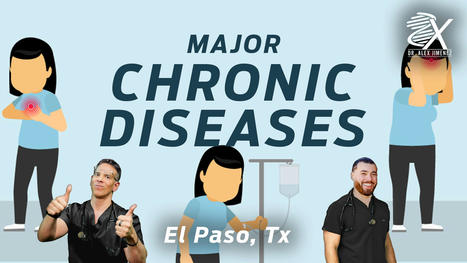









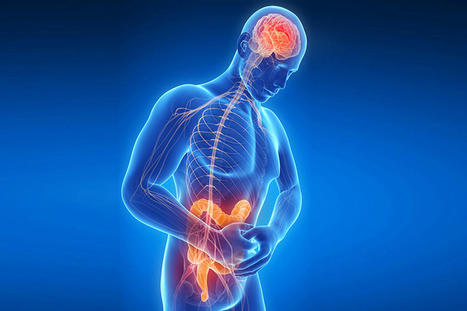
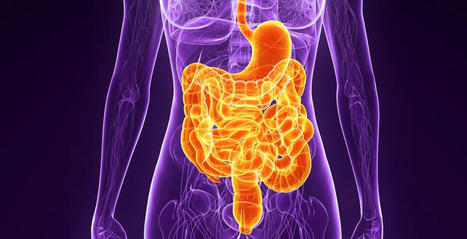





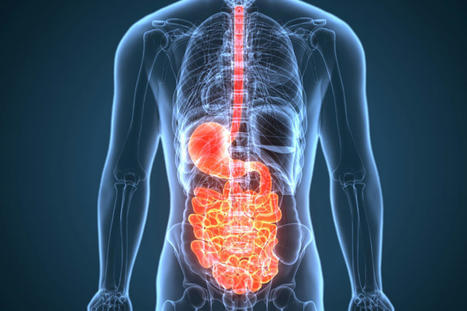

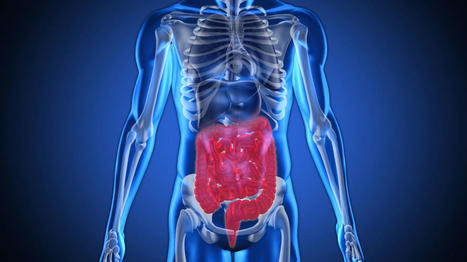
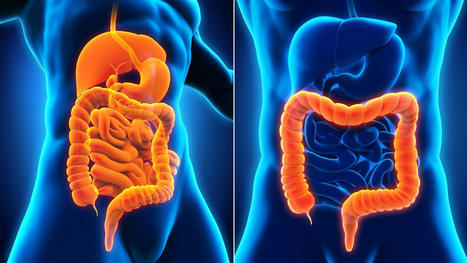


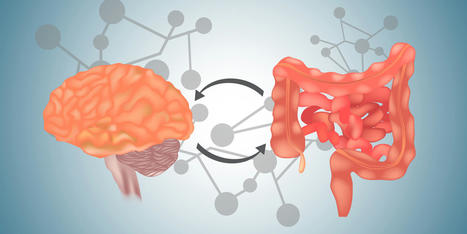
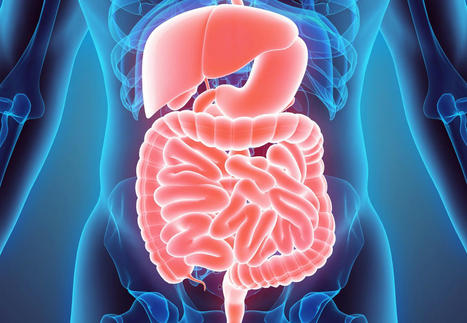






Dr. Alex Jimenez explains how many individuals are understanding the metabolic connection and chronic diseases in this 2-part series. If you have any questions or concerns, please call Dr. Jimenez at 915-850-0900.